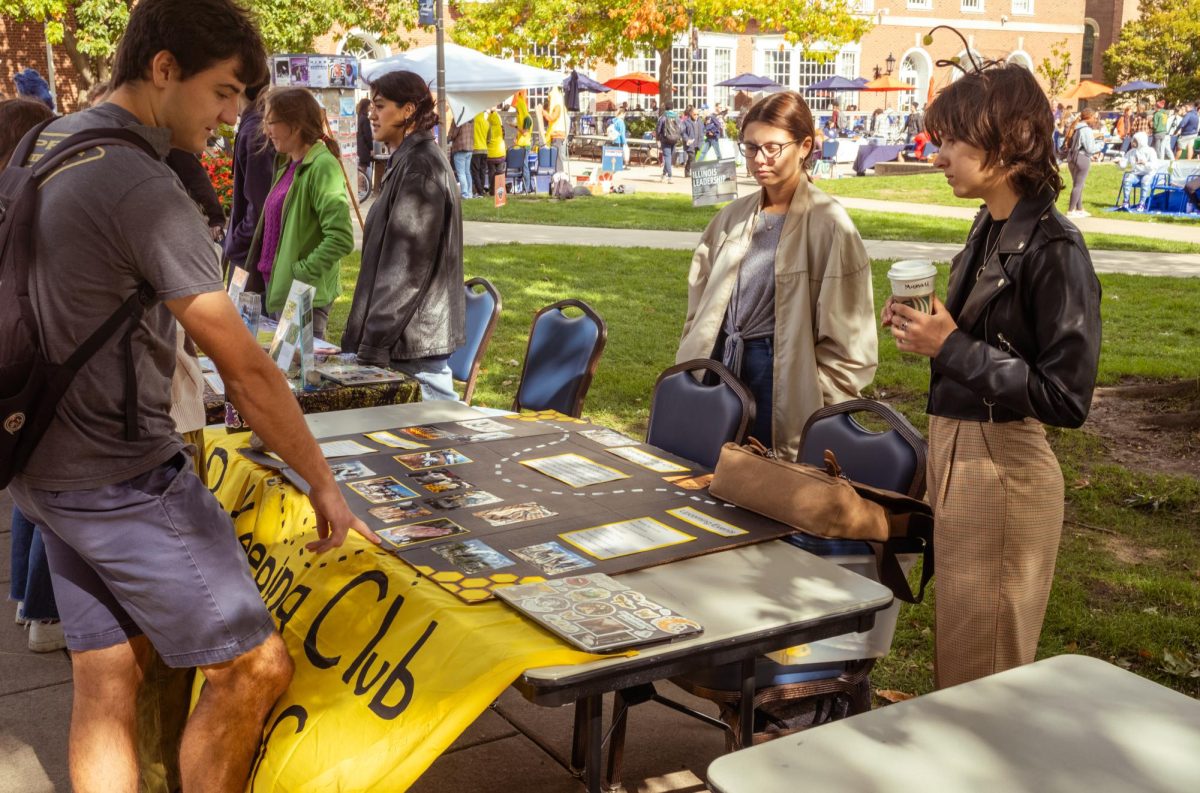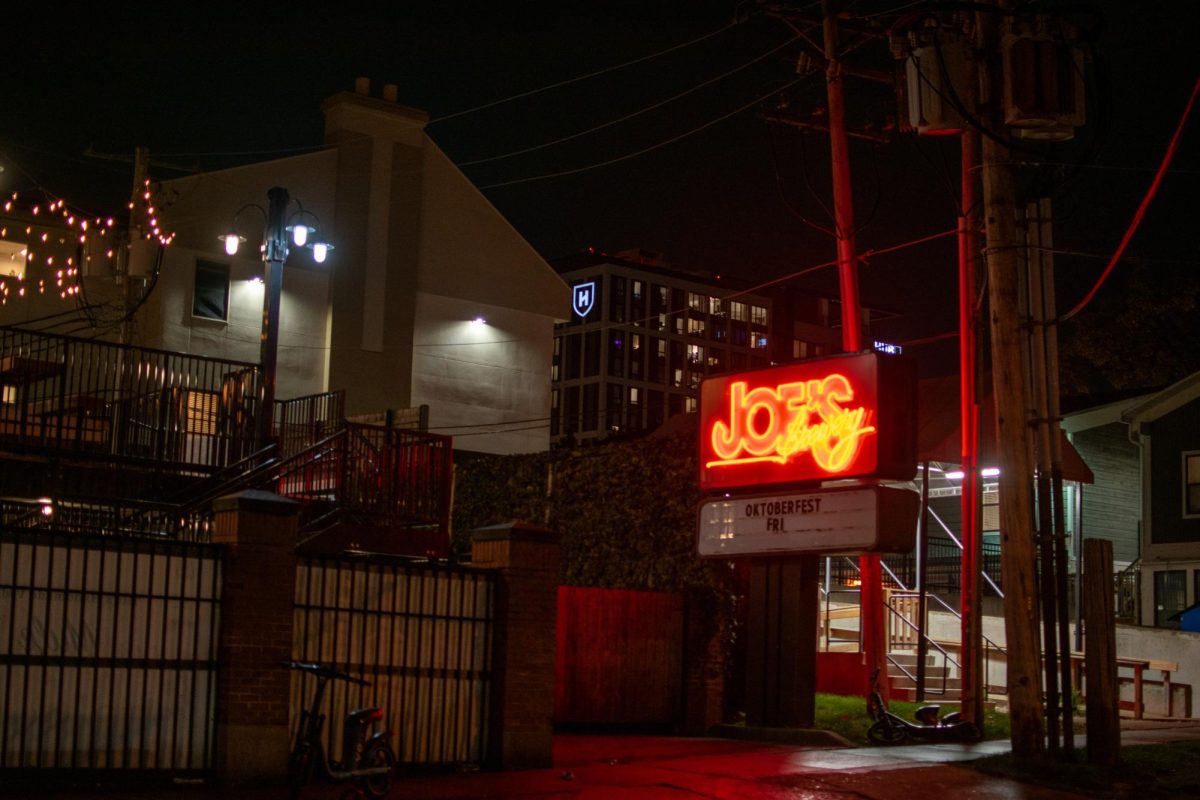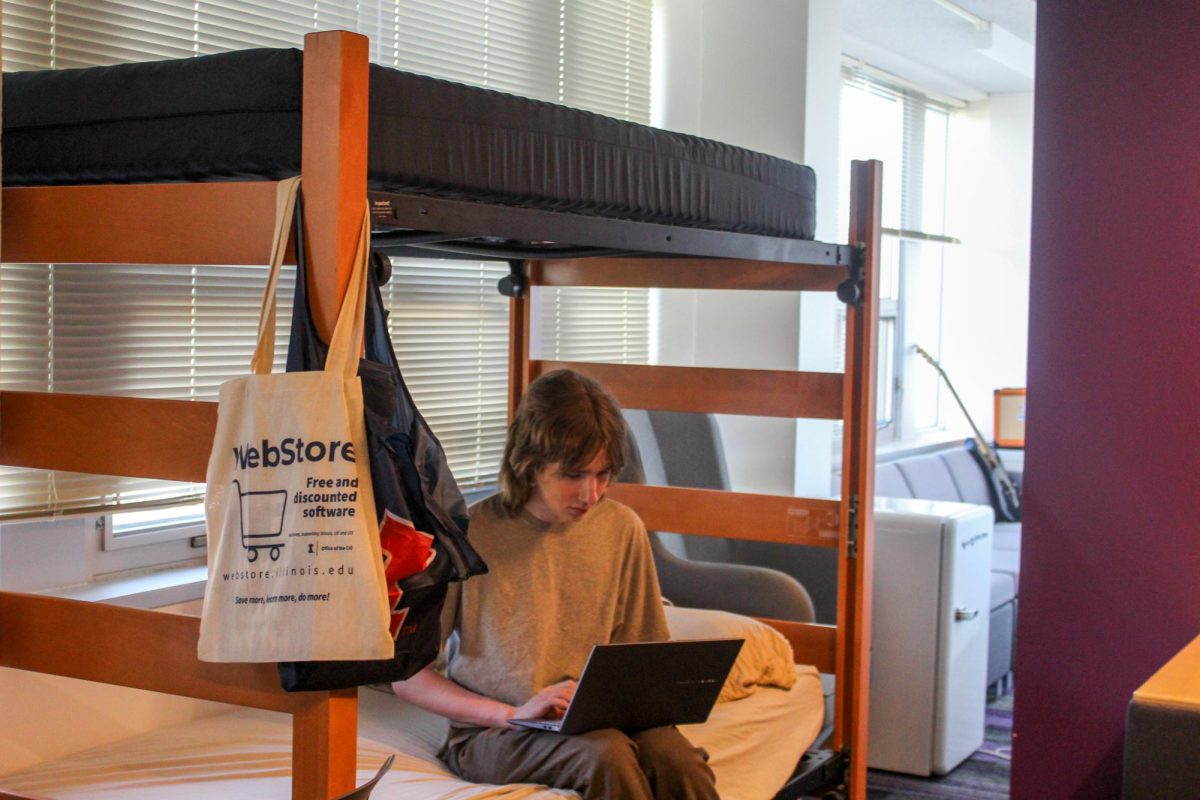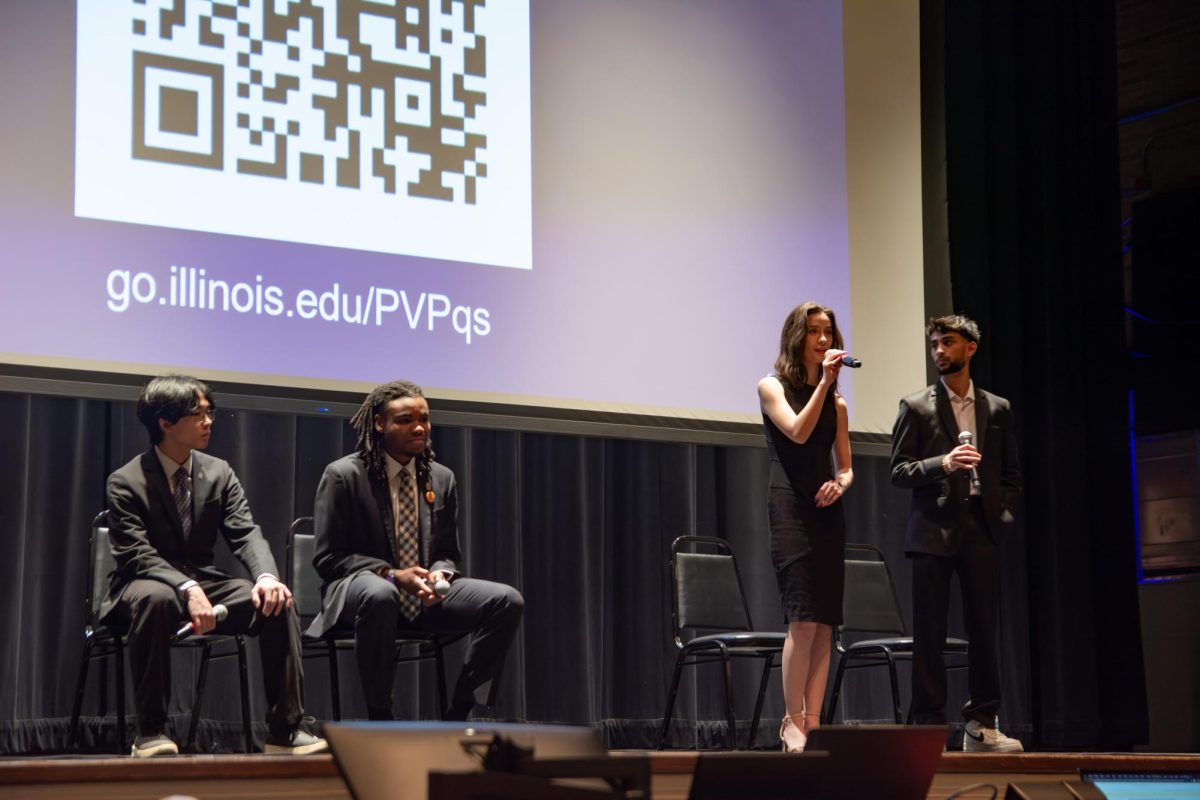Last updated on Oct. 21, 2023 at 10:17 p.m.
Sustainability-focused groups set up tables for the annual Green Quad Day, which took place on the Main Quad outside of the Illini Union on Wednesday from 11 a.m. to 3 p.m.
The event was co-hosted by the Student Sustainability Leadership Council and the Student Sustainability Committee. Registered student organizations and local environmental organizations also had the chance to tell students about their organizations and potentially attract new members.
One of the RSOs participating in Green Quad Day was the Beekeeping Club. President Maja Wlodarczyk, senior in Engineering, has been involved with the club since her freshman year.
“We teach people how to take care of their hives, how to harvest honey, stuff like that,” Wlodarczyk said.
Get The Daily Illini in your inbox!
The club started a pollinator garden to give back to native pollinators and has its own hives at the sustainable student farms.
“We just thought that (Green Quad Day) would be a great place to spread our message about pollinators, pollinator gardens and talk about how students can make an impact to help our environment and our native species,” Wlodarczyk said.
Another popular environmental RSO at the event was Red Bison, which focuses on practicing restoration ecology in the surrounding areas. Juan Carlos Martinez, senior in ACES, has been an active member for the past three years.
He said the RSO usually meets on Saturdays and does what is needed for prairie restoration, such as the removal of invasive species or seed distribution.
“I definitely benefited from Red Bison just from the experience alone because I got hired because a company was interested (in) my experience of doing restoration work,” Martinez said.
These RSOs receive funding from the SSC. Currently, most of the money goes to non-student-led projects since they are typically less costly than faculty-led projects. Still, the committee wants to make sure RSOs are aware of the funding possibilities available.
Anyone can apply for funding as long as the project scope of their platform is sustainably focused and the money for these projects comes from the student body, Lawlor said.
“Every single student at the university, graduate and undergraduate, pays an $18 fee,” Lawlor said. “So, it goes into two different sustainability fees. One specifically for cleaner energy and then one for just general campus sustainability.”
Claire Keating, junior in ACES and chair of the SSC, commented on how the SSC hopes to expand its presence to the campus community.
“Next semester we’re sort of taking this route of not necessarily just being a funding organization, but sort of branching out and becoming more known to the student body,” Keating said. “We want to do more program events and increase general membership.”






